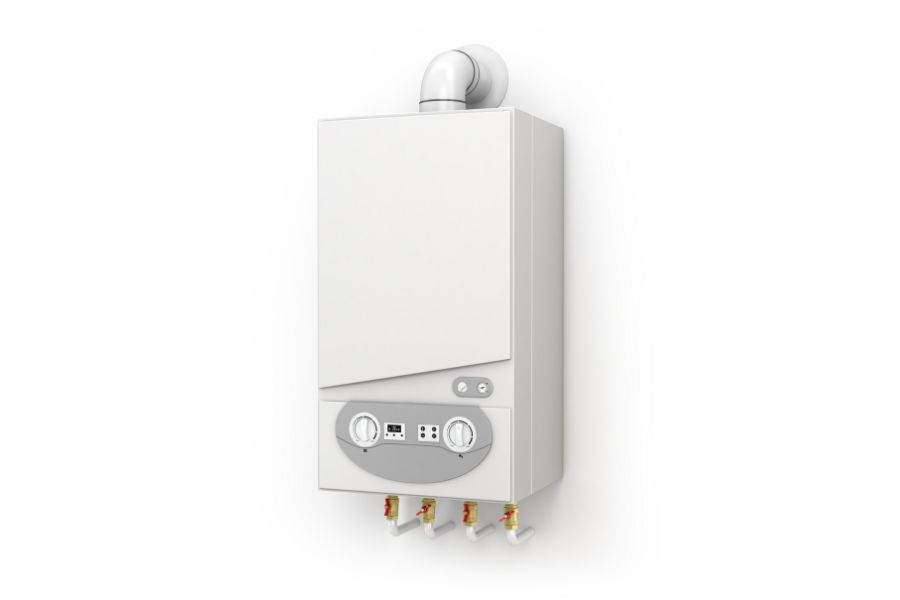Why You Should Consider Gas Combi Boilers for Your Scottish Home: The Ultimate Guide

Living in Scotland, you know how chilly the winter months can be. That’s why ensuring your home is adequately heated and insulated is essential. If you’re looking for a reliable and efficient way to heat your home, consider installing a gas combi boiler! But before making this big decision, it’s best to do some research – which is why we’ve created this ultimate guide on gas combi boilers!
Let’s dive into what makes gas combi boilers great heating solutions for Scottish homes.
Replacing a 20-Year-Old Boiler
If your boiler has been running for over 20 years, it will likely need replacement – regardless of whether it is a conventional or combi boiler. Replacing an old boiler offers several benefits, such as improved efficiency, decreased energy bills, and reduced carbon footprint. Before replacing your boiler, it is essential to consider factors such as size requirements and potential installation costs.
Some of the signs to replace a boiler:
– Unusual noises coming from the boiler or pipes
– Increased energy bills
– Discolouration of radiators
– Leaks and water damage
– Switching from a G-rated boiler to an A-rated boiler to reduce carbon emissions.
Replacing an Old Boiler with a Combi Boiler
When replacing an old boiler with a new combi boiler, several steps need to be taken, from choosing the suitable model to installing it correctly.
Consider Fuel Type
The first step is to consider the fuel source you will use for your new combi boiler. Generally, these boilers run on natural gas. But you can also opt for the one that runs on oil or liquid petroleum gas (LPG) if your house is off the grid.
Choose the Model and Boiler Brand
Once you have chosen the fuel type, you must select a model and brand that meets your needs and budget. Many manufacturers offer different models with various features, such as modulating flow rate, low temperature operation, etc. So, it is essential to compare the specifications of each model to find one that best suits your requirements.
Hire a Gas Safe Engineer
Always hire a qualified installer who can guarantee safe operation and tell you about any additional costs associated with installation. The engineer will help you with the installation, advise you on how to use and maintain your new boiler, and give you essential safety advice. And this way, you can also keep your manufacturer’s warranty intact.
Cost of Installing a New Combi Boiler in Scotland
The cost of installing a new combi boiler in Scotland varies depending on factors such as the size and type of boiler installed and labour costs for plumbers. On average, a mid-range model would cost around £1,750 – £2,500, including VAT for parts and labour costs which could vary based on other factors like the home’s insulation level.
Lifespan Of a Combi Boiler
Usually, combi boilers have an average lifespan of 10-15 years before needing much-needed repairs or replacement. This number can vary based on maintenance issues or how frequently homeowners use the heater, so regular maintenance checks should always be carried out to maximize its lifespan. Additionally, investing in newer models with better energy efficiencies can help save money on long-term energy bills while lowering your home’s carbon footprint.
Advantages Of a Combi Boiler
- High energy efficiency compared to conventional boilers
- Instantaneous hot water supply
- Space-saving design
- No requirement for cold water tanks
- High safety features
- Quieter performance compared to other types of boilers
- Low maintenance requirements
- Innovative thermostat capabilities that allow remote control of heating via phone apps/online portals
Disadvantages Of a Combi Boiler
- Additional plumbing work may be required due to compatibility issues with existing radiators, leading to increased labour costs.
- A limited flow rate at peak demands can decrease pressure across multiple taps running simultaneously.
- Not ideal for larger homes requiring large amounts of hot water at once, as some models may not be able to support higher demands
- Poor maintenance can significantly reduce the combi boiler’s lifespan.
Radiators and Combi Boilers
Most modern properties do not require new radiators when switching from conventional boilers, but always best practice to check this with installers beforehand just in case any unforeseen problems arise during installation due to incompatibility between current radiators or other issues resulting in costly changes down the line – even choose to upgrade existing ones more modern/energy efficient options increase overall efficiency & savings!
Cost Comparison: Combi Vs. Conventional Boiler
Combi boilers are generally cheaper to run than conventional boilers because they do not require storage tanks or time switches. Instead, they provide hot water directly from the mains when needed without any delay or wastage of time or cold water, which leads to much less energy spending overall! Additionally, combi boilers also often come fitted with ‘smart technology,’ which allows you to monitor and set thermostats remotely from your phone – further increasing efficiency and cost savings on your bills!
Final Verdict
Investing in a new gas combi boiler can offer numerous benefits, including:
- Greater energy efficiency leads to lower running costs.
- Increased reliability and safety
- Improved comfort levels throughout the home
- Modern technology and intelligent controls, plus many more
This ensures that homeowners get the best value for their money and maximizes investment returns in the long term through savings on monthly expenses!
